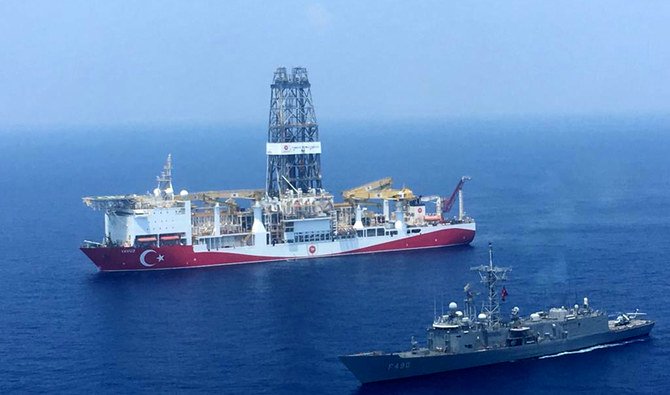Ankara faces new wave of biting sanctions, now from Europe

The European Council’s decision to impose sanctions on Turkey over its drilling activities in disputed offshore territories in the eastern Mediterranean has caused a political earthquake in the country.
In the final declaration, the council said it would suspend civil aviation talks and “agree not to hold … further meetings of the EU-Turkey high-level dialogues for the time being” due to Ankara’s “continued and new illegal drilling activities” near EU member Cyprus.
The decision came after months of escalated tension in the region, where Ankara has deployed three gas exploration ships to expand its drilling operations. Greek Cypriots issued arrest warrants for the ships’ crews.
Pre-EU accession financial aid for Turkey will be cut next year. The EU also advised the European Investment Bank, which supports infrastructure-related investments, to review its lending programs to Turkey.
Sinan Ulgen, a former Turkish diplomat who chairs the Istanbul-based Center for Economics and Foreign Policy Studies, said the sanctions will have little impact on the economic dimension of the Turkey-EU relationship.
“Of more concern however is the very palpable path to further escalation. This predicament underlines the EU’s strategic miscalculation,” he told Arab News.
According to Ulgen, the EU is struggling to design a smart engagement policy with Turkey.
“Instead, it (the EU) has become reliant on punishments like sanctions or the scaling down of financial assistance. Ideally, the EU should create a positive agenda that can be more influential in impacting Turkey’s behavior,” he added.
The civil aviation negotiations on the EU’s Comprehensive Air Transport Agreement, which regulates commercial flights in the region, were suspended under the new sanctions.
“On the aviation agreement, the suspension of the negotiations means that further liberalization in air transport will be postponed,” Ulgen said.
Such liberalization, he added, would have been beneficial for Turkish consumers.
“The impact on Turkish Airlines is less clear. It would have depended on how successful it would be in capturing market share within the EU,” Ulgen said.
Ankara promptly reacted to the declaration by emphasizing that it would continue its activities near Cyprus and would send a fourth ship to the region “as soon as possible.”
The council’s declaration emphasized that additional “targeted measures” were being considered to further punish Turkey.
The EU sanctions coincide with impending US sanctions over Ankara’s purchase of the Russian S-400 missile defense system.
Madalina Sisu Vicari, Brussels-based expert on European energy policies and geopolitics, believes the EU sanctions are delicately calibrated to avoid a significant economic impact and widening the political rift between Brussels and Ankara.
“They were purposefully crafted in order to send a political message, not to harm the Turkish economy,” Vicari said.
Ankara, which does not formally recognize the Republic of Cyprus in the Greek south of the island, began accession talks to join the EU in 2005. Negotiations have not progressed for over a decade because of Turkey’s stance on Cyprus.
Regarding the air transport agreement, Vicari said she thinks it will not impact flights out of Istanbul airport.
“The air transport agreement has been under negotiation since 2010, and it aims to remove nationality restrictions and to operate flights between any EU destination and Turkey. The EU chose to suspend this agreement instead of the EU-Turkey Customs Union negotiations, which are far more important for both sides,” she said.
According to Vicari, suspension of the air transport agreement is a symbolic political move instead of a tool aimed at triggering a change of behavior from Turkey.
However, Vicari anticipates that — depending on political developments — the EU may impose targeted measures on those involved in the drillings.
